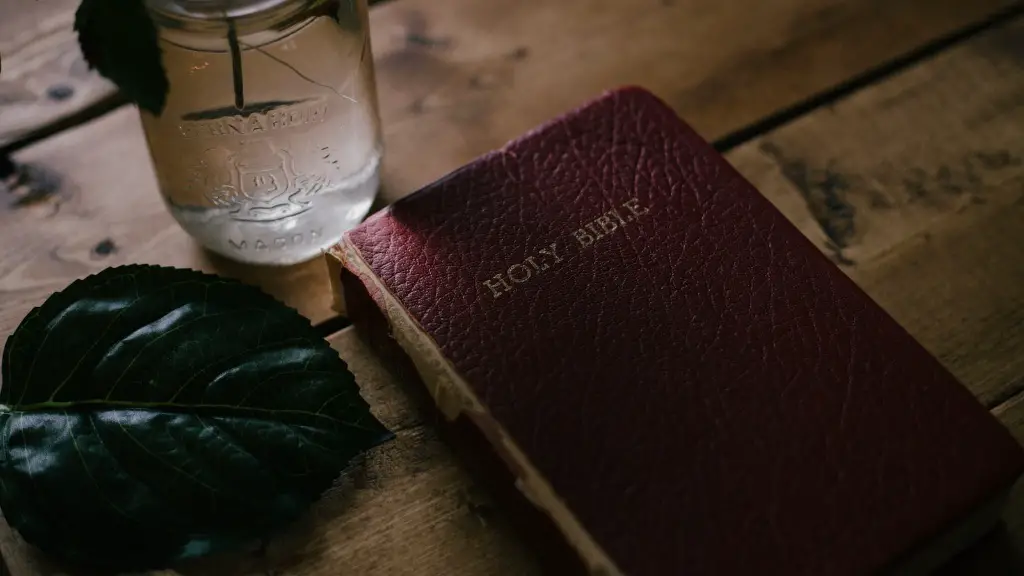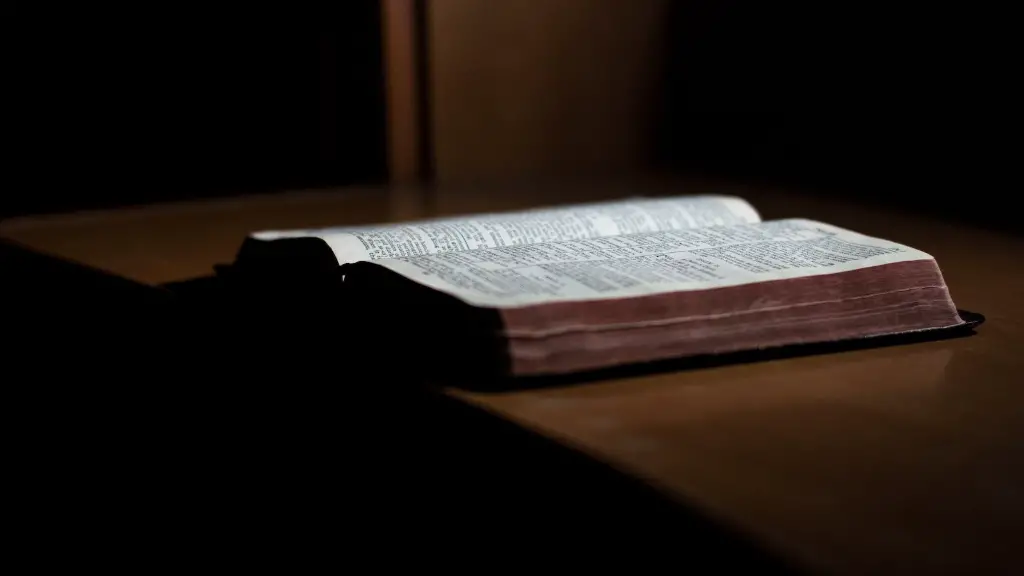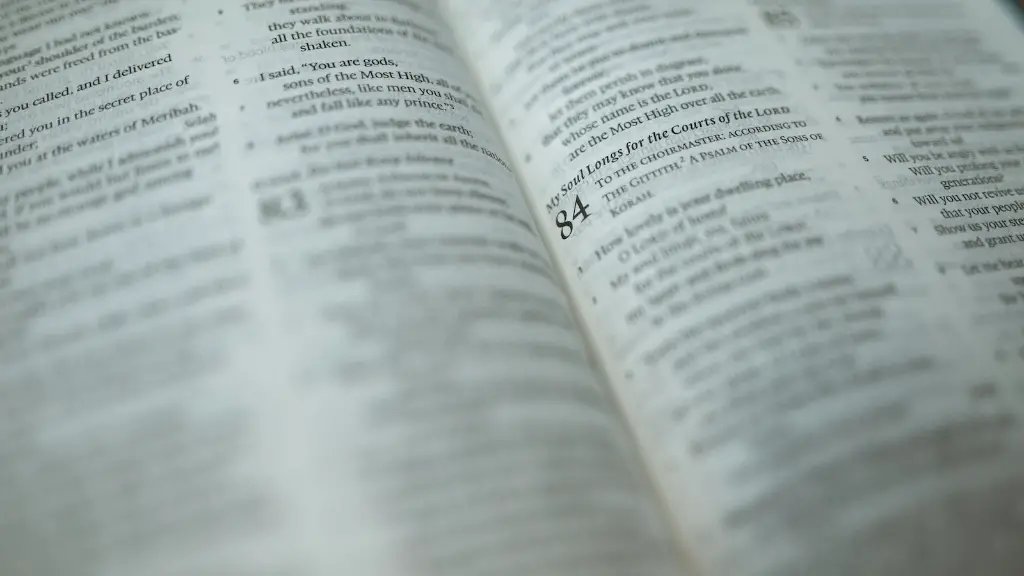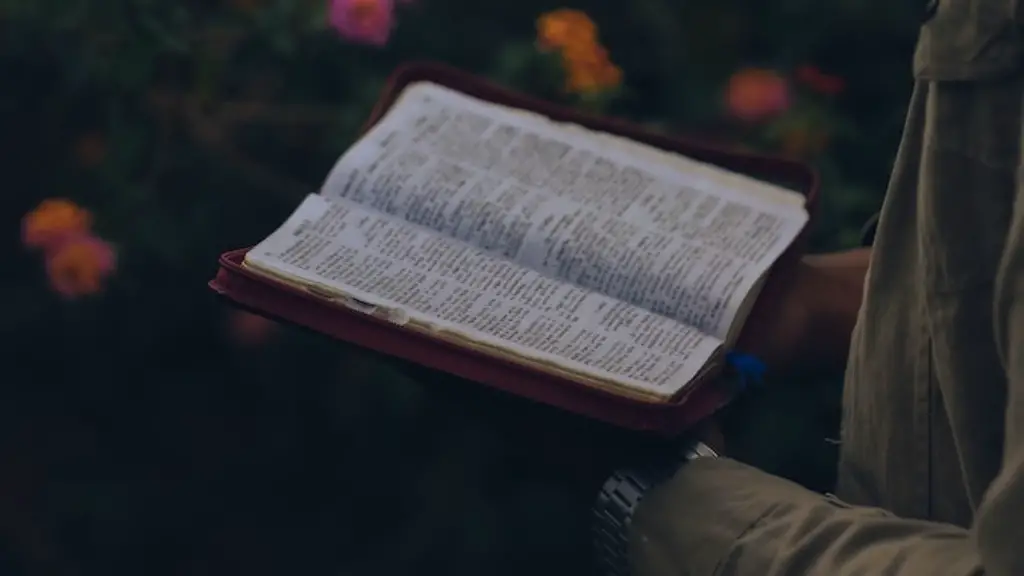Sheol is a Hebrew word referring to the grave and is mentioned in numerous passages in the Bible. It is often translated as “hell” due to its negative connotations, but in reality, the Hebrew concept of Sheol is much more nuanced and complex than our modern understanding of “hell.”
The Septuagint, a Greek translation of the Hebrew Bible, contains the earliest known reference to Sheol, which dates back to the 3rd century BC. Sheol was described as “the abode of the dead,” a place where all the dead go, regardless of their moral standing. There are various references to Sheol throughout the Old Testament, where it is depicted as a place of darkness and silence, where “the dead tremble” and “all the kings of the nations” remain. This paints a grim picture of the afterlife and is likely symbolic of the same fear and uncertainty that plagued the Israelites during biblical times.
In the New Testament, Sheol is no longer regarded as an abode for the dead but instead, it is seen as an intermediate state between life and the afterlife. The dead are not necessarily there forever and their existence depends on the will of God. In the Book of Revelation, Sheol is mentioned as a place of divine judgment, and Jesus is described as the one who has the keys to the abode of death. This concept of Sheol is the closest the Bible comes to describing a hell-like place where sinners go after death.
In Jewish tradition, Sheol is understood to be a place where the soul goes after death. It is described as a dark and still place, where the soul is isolated from the living and is cut off from the world beyond. Sheol also serves as a reminder of mortality, as it is a constant reminder that death is inevitable and life is fleeting.
Today, many theologians believe that Sheol is a metaphor for death and the afterlife. While the traditional concept of Sheol as an abode for the dead is still widely accepted, some scholars have suggested that Sheol is actually a metaphor for the limitations of our understanding of death and the limitations of our mortality. In other words, Sheol serves as a reminder that we will never truly understand death or the afterlife until we experience it for ourselves.
Despite the various interpretations of Sheol in the Bible and throughout history, one thing is clear: it is a concept that has been used to illustrate the brevity and finality of life. While Sheol is often translated as “hell,” its true meaning is much more complex and cannot be defined with such simplicity.
Theology and Sheol
The concept of Sheol is pivotal to the theology of the Old Testament, as it is the primary means through which death and the afterlife were discussed. Theologians of the ancient world believed that all souls were ushered into Sheol immediately upon passing, regardless of their moral standing. However, even within the text of the Bible, there is evidence that this was not the case, as some souls are described as being taken to Sheol for a period of judgment. This suggests that, although Sheol was understood to be the realm of the dead, it had the potential to be a place where souls were judged and either accepted into the afterlife or condemned to some other realm beyond death.
The concept of Sheol and its various implications are further explored in various apocryphal texts, such as the Book of Enoch and the Book of Jubilees. These texts provide further insights into the theology of Sheol and its relationship to the afterlife. In particular, the texts describe Sheol as a place of divine punishment, where unrighteous souls were consigned to suffer for their sins. This further reinforces the idea that Sheol was a place of judgment, not simply a place where all souls were held in equal standing.
While Sheol has been used to illustrate the finality of death, it has also been used to illustrate the power of the divine. The concept of Sheol serves to remind us that life and death is ultimately in the hands of the divine and is not something we have power over. The power and authority of God are paramount, even in the face of death.
Finally, Sheol serves as a reminder to accept our mortality. The concept of Sheol, as a place that all souls eventually must face, serves to remind us that life is fleeting, and that one day, we all must come to terms with our mortality. Sheol is thus a reminder to live life to the fullest, to be thankful for the gifts we have, and to ultimately accept our mortality.
Historical interpretations of Sheol
The concept of Sheol has been interpreted in various ways throughout history. Early Church fathers, such as Augustine and Origen, employed the concept of Sheol to support their arguments for Christian exclusivism. They believed that Sheol was a place where all souls were judged, and that unrighteous souls were consigned to suffer for eternity. This interpretation of Sheol has been largely debunked in modern times.
The Islamic concept of Jahannam, or “hell,” is related to the concept of Sheol in some ways. In Islamic tradition, Jahannam is a place of judgment, where souls are consigned to suffer for eternity if they are judged to be wicked or unrighteous. This idea of a place of punishment has been largely rejected in modern times, as most theologians now view death as a natural process and not a form of divine punishment.
The concept of Sheol has also been associated with various ancient Mesopotamian and Egyptian concepts of the afterlife. In particular, Sheol can be traced to the Akkadian concept of the underworld, which was believed to be a place of punishment for those who had angered the gods. While the exact details of this realm are still largely unknown, it is believed to be similar to Sheol in some respects.
The modern interpretation of Sheol is much less punitive than the ancient view. While it is still viewed as a place of darkness and despair, it is now seen as a place to reflect on mortality and the brevity of life. This interpretation of Sheol has largely displaced the traditional view, which viewed Sheol as a place of judgment and punishment.
What Sheol Means for Modern Readers
For modern readers, the concept of Sheol can serve as a powerful reminder that life is finite and death is unavoidable. Sheol is a symbol for the fragility of life and a reminder to live in the present. By recognizing the inevitability of death, we can appreciate the gift of life and make the most of it.
Sheol also serves as a reminder that the decisions we make today will shape our eternal destinies. As the Book of Revelation reminds us, we must be mindful of how we live our lives, as they will determine our ultimate destination. Ultimately, Sheol serves as a reminder that justice and judgment are in the hands of the divine.
Finally, Sheol serves as a reminder that life need not be viewed in terms of punishment or reward, but rather as an opportunity to cultivate a closer relationship with the divine. Although Sheol has traditionally been associated with punishment and darkness, modern theologians view it as a place of spiritual growth and transformation, where we can come to terms with our mortality and the brevity of life.
Conclusion
The concept of Sheol has evolved over the centuries and has been interpreted in various ways. However, one thing remains certain: Sheol serves as an important reminder of the fragility of life and our ultimate mortality. Sheol is a symbol of the power of the divine and our need to accept our mortality and make the most of our time here on earth.




